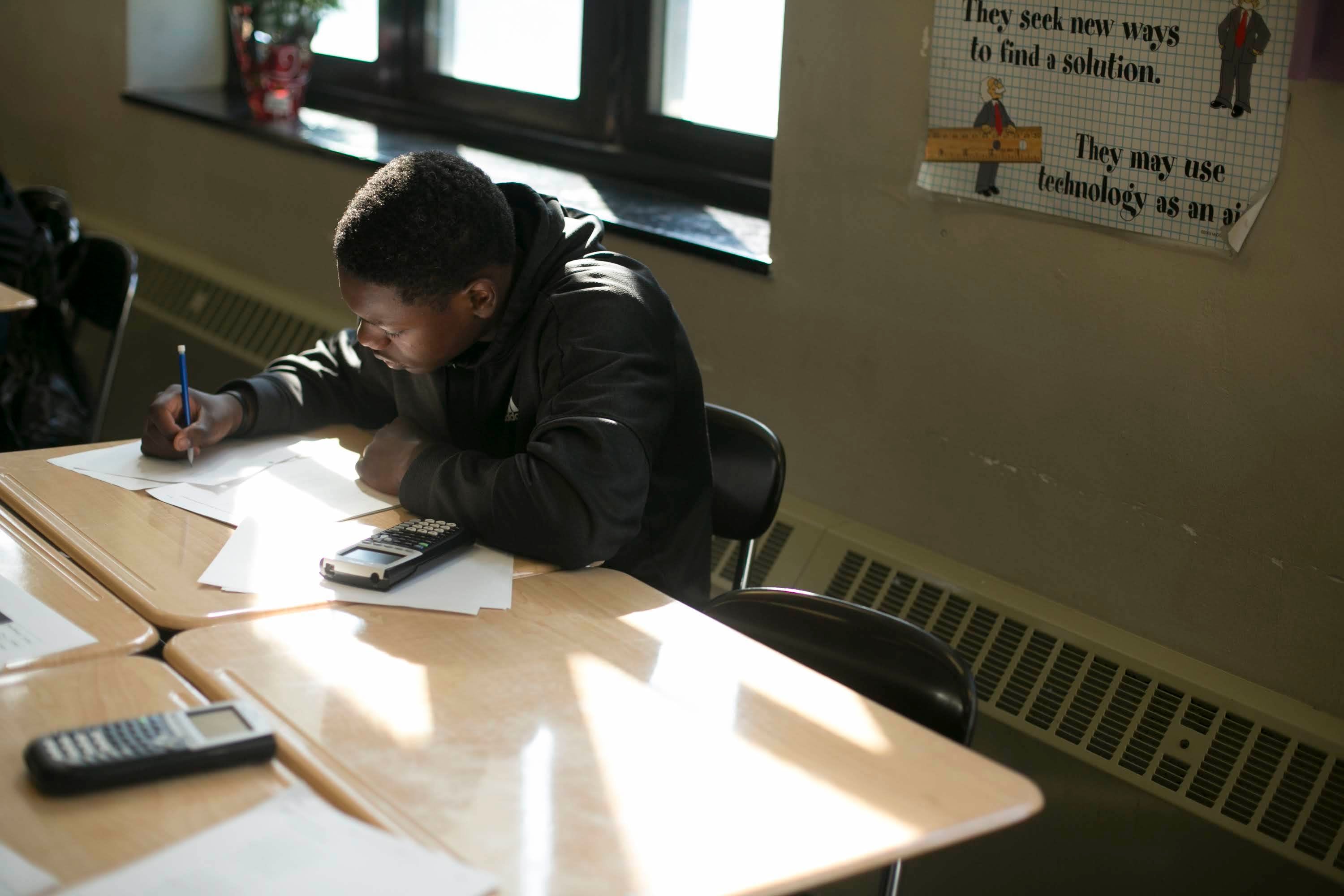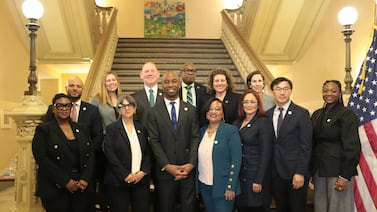The Detroit school board voted Thursday night to suspend in-person instruction until its May 11 meeting, a pause that could be extended if the city’s COVID-19 infection rates haven’t improved.
The board vote, taken during a special meeting, came two days after several board members failed in an attempt to suspend in-person learning for the rest of the school year. The 3-2 vote on Tuesday failed because the board needed at least four “yes” votes for it to succeed.
“The district would continue to monitor infection rates,” Superintendent Nikolai Vitti said. “If they are roughly where they are now, or even slightly lower, we would make a recommendation to suspend in-person learning from the May meeting until the end of the school year.”
During Thursday’s meeting, Vitti said he has spoken to individual board members and incorporated their feedback in a proposal the board eventually backed unanimously.
The plan says:
- In-person instruction will not resume until May 11, the date of the next school board meeting.
- The district’s learning centers, where students can go to complete their virtual learning under the supervision of a staff member, will reopen on April 26.
- Teachers can voluntarily choose to work in their classrooms with any student who wants to come into the school building to learn.
- Beginning April 26, the district will begin weekly COVID-19 testing — using saliva tests — of students and staff who have returned to the learning centers.
The regular COVID-19 testing is a “significant safety strategy to keep our employees and our students safe,” Vitti said.
“Employees and students legally will have an opportunity to opt out,” Vitti said. “We don’t foresee many opting out. We believe most if not everyone will test.”
During the public comment period, one parent asked what would happen if people opt out of testing. Vitti replied that the district by law cannot force students to be tested. The district can require employees to be tested, and the district has done so when schools reopened this school year.
The district is currently paused. It was among some school systems in the state that halted in-person learning after spring break, because of fears that COVID-19 could spread from people who traveled while off school.
The district had planned to reopen its buildings for face-to-face instruction and for students to attend the learning centers on April 26. Now, with the board action, only the learning centers will reopen.
More difficult conversations lie ahead for the board. District officials previously set a threshold of a 5% COVID-19 positivity rate when determining whether to open or close schools. The city’s positivity rate is now about 20%.
“The COVID rate of infection will probably not be 5% for a very long time,” said board member Corletta Vaughn.
Vitti said that threshold will need to be reexamined, with consideration given to the city and state infection rates, the rates in surrounding school districts, and positive cases in schools. He said the district also could set different thresholds for high schools than it does for elementary and middle schools, as well as have different thresholds for certain groups of students, particularly students with special education needs.
During the public comment period of Tuesday’s board meeting, many of those who spoke cited safety concerns in urging the district to shut down its buildings. On Thursday, the board heard from those who urged the district to continue having an option for parents and children who want to be in school.
“Just remember that there are parents like myself and students that really need to be in the learning centers,” said Sharene Nathan, a parent action leader at Ludington Magnet Middle and Honors School, where she is a liaison between the school and parents.





